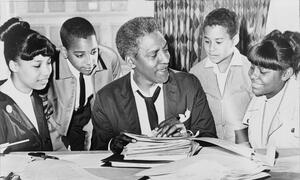Billy Lucas grew up an Indiana farm boy in Greensburg—halfway between Indianapolis and Cincinnati, Ohio. He grew up winning blue ribbons for his prized and much loved horses and lambs. He also grew up enduring taunts, threats, and physical abuse from bullies. He grew up with those bullies telling him he should kill himself because they thought he was gay. Whether he was or not, Billy never said.
